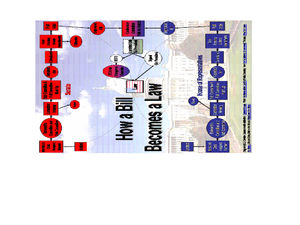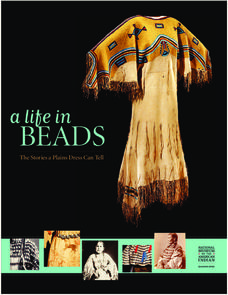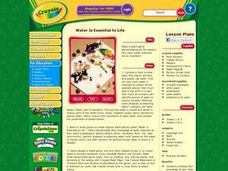Curated OER
How Government Works and the Rights of the People
Eighth graders identify how to be responsible citizens. In this civics lesson, 8th graders review websites of congressional members and then create questionnaires about the responsibilities of citizens.
Curated OER
Power to the People: Social Movements of the 1960s
Students engage in a professional development workshop for teachers in the delivery of curriculum about the era of the 1960's. The emphasis of the workshop is using popular culture of the time in order to launch investigations that are...
Curated OER
We the People: 270 out of 538
Students engage in a lesson that helps them better explain the quadrennial ritual surrounding the election of a president in the United States of America.
Curated OER
Power of the People
Students determine the meaning of democracy and investigate accomplishments of a number of United States presidents. They look at images of the presidential one dollar coins before they determine how the job of the president differs from...
Curated OER
In Their Own Words: Slave Narratives
Students identify primary sources, explain the strengths and weaknesses of personal accounts in history, and negotiate the Library of Congress Database. They also analyze documents and write a summary that compares and contrasts the...
Curated OER
Emotions: describe These People
In this ESL emotions worksheet, students will analyze the emotions pictured. Students will complete 8 sentences, choosing the correct word to complete the feeling that is depicted in each photograph.
Curated OER
Gold Rush Abolitionists: How different was the role of Spanish-speaking blacks under Mexican rule from the role of English-speaking blacks under U.S. rule?
Students determine how Spanish-speaking blacks and English speaking blacks were treated differently. In this emancipation lesson, students compare the Mexican and American rules regarding slavery.
Curated OER
What Happened to Slaves When their Owners Died?
Students analyze last and testaments of former slaveowners to identify and explain economic, social and cultural differences between the North and the South leading up to the Civil War.
Peace Corps
Community
What is a community? Find out with a lesson that sheds light onto the different types of communities—school, local, and global. Scholars read informational text detailing the life of a young girl from Cape Verde and take part in a...
Smithsonian Institution
A Life in Beads: The Stories a Plains Dress Can Tell
Young learners discover how the Sioux and Assiniboine tribes preserved native culture through the making of traditional dresses, identifying the resources used to make the dresses and discussing behind the meaning behind some American...
Michigan State University
Friend or Foe?
What one person thinks is a pest may not be a pest to someone else. Here, scholars examine the characteristics of living things and pests through grand conversation and a variety of activities. Class members play a game of pest or not a...
NPR
The Obama Years
Beginning with a quick writing prompt, young historians write about what they will remember most about President Obama's legacy. The activity opens up a larger discussion and exploration of his accomplishments, milestones, and the impact...
Global Oneness Project
The Nature of Happiness
The U.S. Constitution states that the pursuit of happiness is an inalienable right. The United Nations' Global Happiness Index ranks countries according to the happiness of its citizens. As part of a discussion of the nature of...
Curated OER
What Do You Do?
People play all sorts of roles during their lifetimes. Learners interview three adults about the role they play most and, what type of lifestyle they feel they have. Kids then write summaries of their interviews, focusing on what role...
Curated OER
Outside The Castle
Students examine pictures of people who lived during the feudal system. In groups, they research the role and lifestyles of the nobility and commoners. To end the lesson, they draw their own fictional person and write their own narrative...
Curated OER
Bible Lesson
Take a creative approach to teaching about community in a religious context. Learners read Acts 2:42-47 and choose the verse they feel exemplify the importance of community. They then pair share, write journal responses, and then...
Curated OER
Water is Essential to Life
Young scholars increase their knowledge of why clean water resources are essential to the survival of plants, animals, and people. They deomonstrate their understanding of the role of water for sustaining life by creating an original...
Curated OER
House Plays
Preschoolers identify the different types of homes people live in though discussion and presentation of nursery rhymes, which include "Peter, Peter, Pumpkin Eater," and "There Was An Old Woman." They get together in groups, and each...
Curated OER
Cooperative Puzzles
Students discuss and demonstrate how to play and work cooperatively with other people and with a group. In small groups they role-play how to work cooperatively with each other, with the goal of completing their group's puzzle using...
Facing History and Ourselves
Preparing Students for Difficult Converstaitons
Many of the issues facing 21st Century learners are challenging and even discussing these issues can be a challenge. So how do teachers prepare learners for these difficult conversations? How do instructors create a safe classroom where...
Heritage Foundation
Voting and the Constitution
How difficult was it for everyone to get voting rights? Understanding voting rights and the fight to get them for everyone in the United States can be tricky for some learners. However, they are clarified after engaging in the...
Mascil Project
Sports Physiology and Statistics
If I want to build up my heart, where should I start? Science scholars use statistics in a sports physiology setting during an insightful experiment. Groups measure resting and active heart rates and develop a scatter plot that shows the...
Friends of Fort McHenry
Sensory “Star Spangled Banner”
Music can help us to access memories and events in a meaningful way, and Francis Scott Key used specific words to convey what he had seen and felt when writing what would become America's national anthem. Help your class connect to the...
Curated OER
Silly to Serious Cards and Panels
What are the unwritten rules of formality in different social situations? Help learners identify when it is the appropriate time to be silly, funny, or serious with this collection of illustrated panels and cards.

























